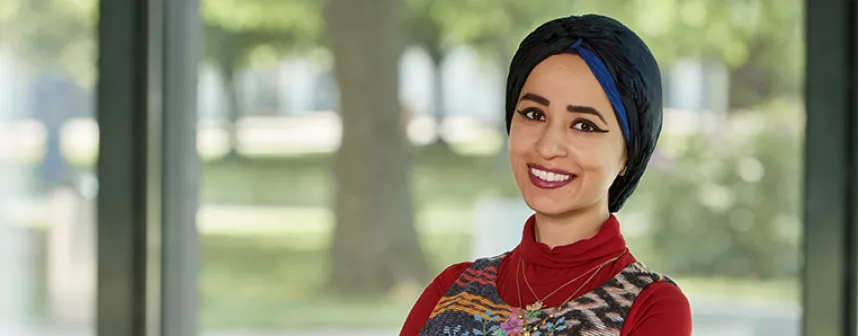Neurobiological model to better understand creative processes
June 2, 2022
"Many believe that creativity is assigned to a single brain region. But that is not the case," said Radwa Khalil. Together with scientists from South Africa and Australia, the neurobiologist at Jacobs University Bremen has proposed a computer-based model that assigns creative processes to neural networks in the brain. Depending on the type of creative activity, these networks can be designed differently. The research results have recently been published in the prestigious journal Neuroscience & Biobehavioral Reviews.
Creativity is understood as the creation of novel, useful and surprising solutions. The researchers argue that the associated cognitive processes, such as the ability to abstract, improvise, or think divergently, involve different brain areas that are interconnected. These areas include the cerebellum, hippocampus, prefrontal cortex, and basal ganglia (see figure). Different areas are activated depending on the type of creativity. The similarities and differences between these types of creativity and their neuronal circuits are described by the model with the help of algorithms. Dopamine plays an essential role as a critical modulator for controlling and optimizing creative neural pathways.
With this proposed neural network model, the scientists, for the first time, provide a unified framework for seemingly three different forms of creativity. "With this starting point, we hope to thoroughly contribute to a better understanding of the underlying neuronal mechanisms," said Khalil. "The more we know about these mechanisms, the more specifically we can promote creativity and possibly contribute as promising interventions for people with relevant disturbed brain areas."
With their model, the scientists also want to initiate a discussion about neurobiology and creativity, adds Radwa Khalil. An associate professor, Ahmed A. Moustafa, from the University of Johannesburg and the School of Psychology at Bond University in Australia, are also involved in the research. As a visiting Professor of the German Academic Exchange Service (DAAD), Moustafa will continue his creativity research this summer at Jacobs University, hosted and led by Professor Dr. Ben Godde Professor of Neuroscience at Jacobs University Bremen.
Publication:
A neurocomputational model of creative processes.
https://doi.org/10.1016/j.neubiorev.2022.104656
Questions are answered by:
Radwa Khalil | Neurobiologist
Tel. +49 421 200-3430 | r.khalil [at] jacobs-university.de
